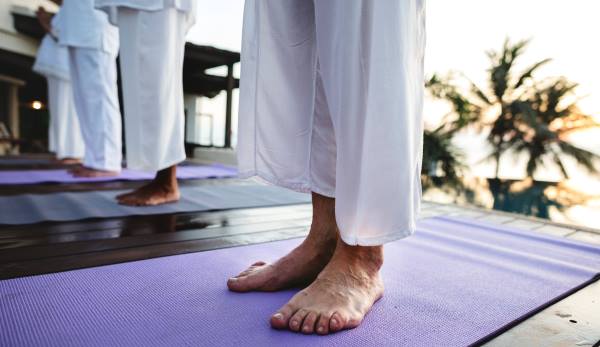One of the greatest fears for aging seniors is losing their independence. Yet, many seniors can preserve control over their life by taking simple steps to prevent falls in their home. Falls are a leading cause of injury for older adults, and a primary objective of aging-in-place planning. So, if you are a senior who wants to age in place safely, you will need to make these adjustments.
Make Fall-Prevention Changes in Your Bathrooms
Did you know that bathrooms can be a dangerous place for seniors? Bathrooms tend to be the location of many senior falls inside the home. The slippery floors and surfaces can make simple movements, like getting in and out of the tub, risky for older adults who are aging in place.
You can make your bathroom safer with some modifications that are designed to prevent seniors from falling. Grab bars are a good idea around tubs, showers, and toilets, while a walk-in or zero-entry shower is wise for seniors with mobility issues. Some changes you can make on your own, but others may require a skilled pro. For major changes, like replacing your slippery tub, be sure to contact Bild for information and an estimate on project prices and timelines. Download our bathroom accessibility guide for considerations for bathroom safety.
Research Medical Alert Services for Your Home
To create a safe home for aging in place, you should go room by room making the necessary changes to increase mobility and decrease the risk of injury from falls. Replacing tile with carpet and widening doorways are both changes many seniors will need to make.
But if you really want to feel secure throughout your home, you should also look into medical alert services. Made popular by the infamous TV commercials, medical alert systems are actually a very smart idea for seniors looking to age in place at home. The benefit of these systems is that seniors can call for help from any room in their home, whether they can easily get to a phone or not. Being able to access emergency services after a fall can help reduce the severity of your injury. It can even potentially save your life.
Change Your Diet and Exercise for Healthier Bones
Falls can be so detrimental for seniors because aging muscles and bones tend to be more prone to serious breaks. Increasing bone strength, however, can be as easy as making a handful of diet changes to strengthen your musculoskeletal system. Load up on healthy, whole foods, such as leafy dark greens, fatty fish, and dairy products, to help prevent a reduction in bone density as you age.
Diet changes can be a simple way for seniors to take better care of their bones. But for fall prevention, you will also need to incorporate enough exercise into your routine. You also need to incorporate the right exercise routine, so try to focus balance-building workouts, like doing tai chi or yoga.
Schedule Checkups With Your Healthcare Provider
Being proactive with your health routine and your home are integral to any fall-prevention plan. Another layer to that plan, and perhaps the most important one, should be to check in with your doctor on a regular basis. That’s because your health, and your fall risk, can be very closely connected. For example, some prescription drugs are known to increase falls for the seniors who take them. Your doctor can work through your list of medications and let you know if the prescriptions you take for depression, anxiety, or certain heart conditions could put you at a greater risk of a serious fall. In addition to medications, many senior health conditions can boost fall risk as well. For example, the physical and mental complications of dementia can make a senior more likely to fall.
Reducing the risk for falls, both in your home and your life, can help increase your ability to age in place. Aging in place means staying longer in the home you love and enjoying a greater quality of life as you get further into your golden years. So make simple changes now, so you can stay in control of your life later.
This article was written by Hazel Bridges – an advocate of health and wellness for seniors.

